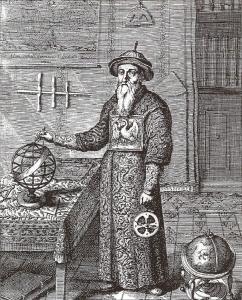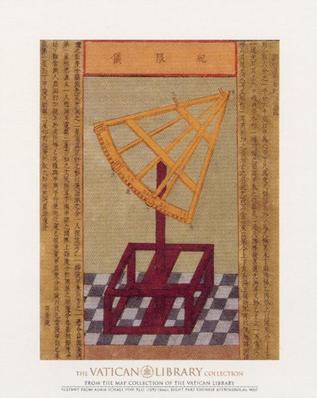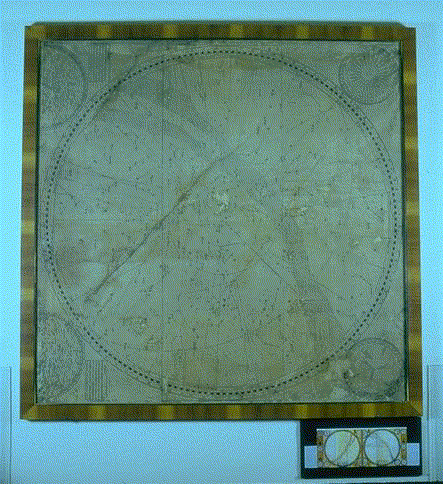Influential Forces at the Imperial Court
1. The Jesuits
Joshua Coe: General Overview
A. - Geographical separation caused ETHNOCENTRISM: China saw itself
as “the middle kingdom”, the center of the world which was inconsistent
with the depiction of the world by western cartographers
B. - Chinese emperor is “son of heaven” who rules with “mandate
of heaven”.
- Chinese saw the world known to them as an extension of their own shere of
influence
- their concept of rule was not egalitarian but hierarchical
C. Other countries (Japan sometimes, Vietnam, Korea) already were greatly
structured by Chinese Confucianism
D. China most powerful country in the world at this time
E. Agnosticism and Skepticism seen in CONFUCIANISM…(37): when confronted
with Christianity many Chinese rejected the virgin birth, the incarnation,
the miraculous healings, the resurrection and the trinity.
F. NEO-CONFUCIANISM (39). A dimension developed since the 10th century:
…based on explicit religious dimensions....more specific transcendence ideas…(Ricci
and other Jesuits criticized this, preferring older versions of the interpretation
of Confucian classical texts)
Neo-Confucianism is quite inconsistent with Christianity. Yin-yang-Theory
and Neo Confucianism highly critical of Christianity
G. Chinese fear of subversion (39) especially after Manchu came to
power, because originally foreigners, had to fight way to power, threats to
power very possible, actually a minority in the vast population of China.
Lived in perpetual state of worry…pressured scholar officials to be on alert
against subversive activity (Jesuits)
I. Another basis for anti-Christian sentiments: fear that Christianity/Christian
churches might upset the harmony of nature….Feng Shui/Geomancy…ones fortunes
can be improved by buildings, graves, and homes built in harmony with their
natural surroundings.
J. Fear that Jesuits/Christianity would seduce Chinese women….upper
class families, women secluded in the home…religious rites and rituals-priests
accused of touching women…..churches often built with separate chapels for
women, but Jesuit sacraments required close contact with priests. During confessions,
a mat hung in between the priest and the confessant and an observer sat at
the other end of the room. Close enough to watch, far away enough to not hear.
K. Fear that missionaries performed alchemy…Daoist alchemy included a search for immortality involving mercury…and many confused Ricci’s teaching of Christian immortality with the Daoist immortality…. Especially when Portuguese traders brought mercury and returned with silver…(another alchemist material)
Heather Corley: Johannes Adam Schall von Bell (1591-1666)
I. Training and Arrival in China:
Attended Tricoronatum Jesuit College of the Arts, German College at Rome, and Gregorian University
Mastered Classical Latin, theology studies, was taught mathematics by a “friend” of Galileo and Kepler; also studied law, history, geography, science, and biblical texts throughout his life
Arrived in Macao in July of 1619 during the expulsion of Christians missionaries from China, and stayed there for three years
Arrived in Beijing in January 1623
II. Gaining Access to Court in the Ming: The Calendar (Emperor Chongzhen; r. 1628-1644)
Immediately presents the court with a list of his mathematical and astronomical knowledge
Accurately predicts several eclipses and gains the friendship of the Finance Minister
Predictions outdo all the Chinese and Muslim astronomers and the emperor commissions the Jesuits to reform the Calendar
Emperor impressed enough to commission Schall to construct a private
observatory for the emperor, repair a favored instrument, build 500 cannons,
and design a defense strategy for the city
III. Gaining Access to Court in the Qing: (Emperors Shunzhi and Kangxi)
Appointed Director of the Institute of Astronomy and becomes a fifth level official
Saves young emperor from a possible overthrow by his regent (in the emperor’s favor from here on)
Raised to the Imperial Chamberlain and becomes the highest tier of the first level of mandarins
“Cures” emperor’s betrothed and
from here on he is in the favor of the emperor’s mother
IV. Use of Influence at Court:
Tempers emperors rash and impulsive behavior
Curbs the powers of the Tibetan lamas
Helps more missionaries to enter China
Keeps the Dutch from expanding their trade monopoly into China
Numerous humanitarian causes
V. Downfall:
Emperor Shunzhi dies in 1661; he had tuberculosis, but small pox took his life
1644 Schall von Bell suffers a massive stroke leaving him mostly paralyzed and barely able to speak or walk
Yang Guangxian and the new emperors regent conspire to do away with Christianity in China
Inflammatory rumors and literature
Schall von Bell and colleagues arrested and brought to court several times; finally jailed and Schall von Bell is sentenced to suffer Ling ch-ih while his colleagues are to be beheaded
While in jail with their death warrants awaiting the emperors signature a comet appeared on 4-13-1645, 4-16 a huge earthquake rocks the city, 4-19 Schall von Bell’s colleagues are given amnesty and released, 4-29 a fire destroys more than forty rooms in the Imperial Palace; five members of the Academy are beheaded, thirty missionaries are banished to Canton, but Schall von Bell is freed
He is brought before the Minister of Rites three more times before
he passes away in August 1666.

 Portraits of Adam
Schall
Portraits of Adam
Schall
 Sextant by Adam
Schall
Sextant by Adam
Schall
 Adam Schall explains
the globe to the emperor
Adam Schall explains
the globe to the emperor
 Portrait of the
Shunzhi emperor (1644-1661)
Portrait of the
Shunzhi emperor (1644-1661)
 Astronomical
map by Adam Schall
Astronomical
map by Adam Schall